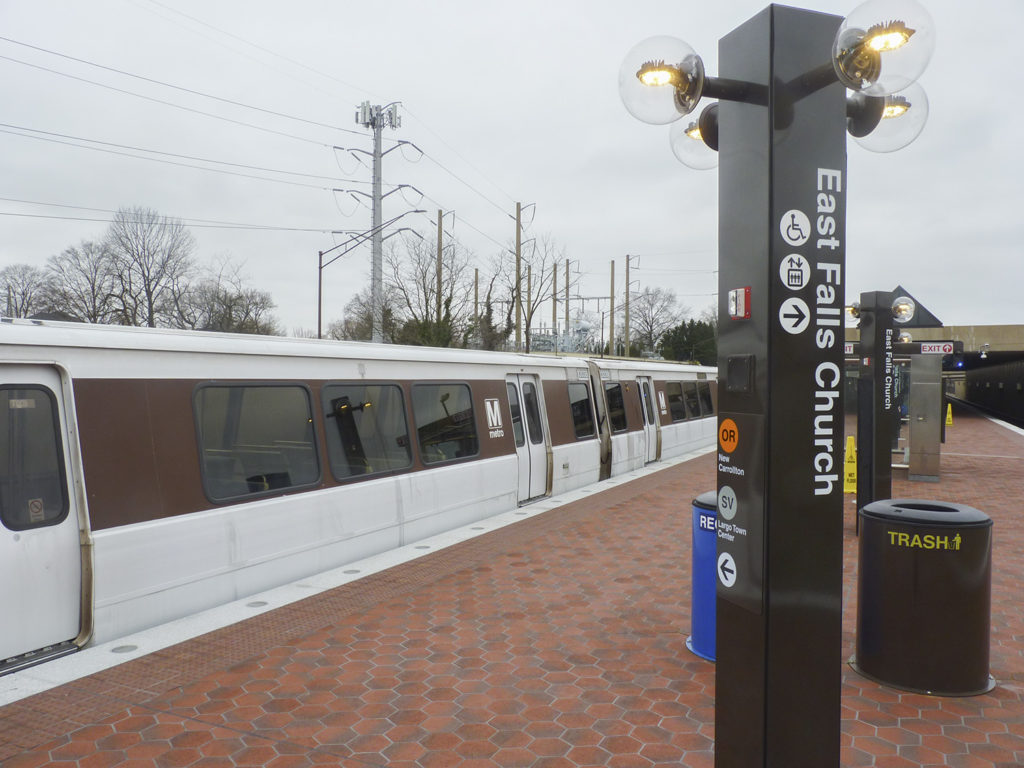The following is special guest commentary written by Stewart Schwartz (Coalition for Smart Growth), Alex Baca (Greater Greater Washington) and Ron Thompson (DC Transportation Equity Network) on the “Ten Transit Equity Principles” suggested for the Washington Metropolitan Area Transit Authority to adopt.
Transit is Essential
The pandemic has spotlighted just how critical transit is for our essential workforce. While Metrorail ridership has declined by 90 percent, reflecting the high percentage of office workers who can telecommute, Metrobus ridership declined by 60 percent. Metrobus and our local bus systems have continued to carry our health care workers, grocery store employees, public safety and maintenance staff, and the many other people upon whom daily life depends. We also know that 52 percent percent of Metrobus riders come from households making $30,000 or less per year, and 81 percent are people of color.
We Supported Federal Emergency Funding:
Many of our groups campaigned for Federal emergency funding for transit, helping win three rounds of national transit funding: $25 billion in Mar 2020, and $14 billion Dec 2020, and the just passed $1.9 trillion American Recovery Act which includes another $30.5 billion for transit. WMATA received $767 million in the first round, and $610 million in the second round, and while the three-state region is expected to receive $1.4 billion in the third round, the allocation to WMATA has yet to be determined.
Federal, State, & Local Should Fund Needs in FY22
The proposed WMATA FY22 budget included the $514.4 million in federal emergency funds from the December 2020 legislation, but showed a $209 million shortfall and led to proposals for draconian service cuts. Over 18,000 people commented about the proposed cuts and we expect that they were overwhelmingly negative.
In fact, during the hearings we were heartened to hear the strong support for both Metrobus and Metrorail and the essential role they play in people’s lives.
WMATA now says it will update the budget to reflect the new round of emergency funding, which will eliminate the draconian cuts. WMATA should have the funds it needs to carry the system into FY23. However, in the event of remaining shortfalls, our state and local governments should redeploy spending from highways to fully fund WMATA and local transit service.
Allocation of Federal Funds And Restoring Service
We urge WMATA to budget and plan for full restoration of pre-pandemic service by the end of summer 2021. Restoration of bus service should continue to be a top priority.
We also urge WMATA to budget and plan for expanded service, particularly Metrobus service, to respond to the region’s changing needs: As we recover from the Covid-19 crisis, we expect that fewer people will commute at traditional peak times to the District’s downtown core, allowing for more frequent service throughout the day.
Funding Priority 1: Operations
- Use emergency funding to restore transit service, and prioritize bus service.
- Ensure frequent, reliable service; cleanliness and personal safety; and provision of additional service to ensure extra capacity.
- Develop a marketing plan in conjunction with elected officials and with business and non-profit leaders to demonstrate the safety and benefits of returning to transit.
- Readjust Metrorail service to reflect increased telecommuting and the benefits of shifting peak hour service to daytime, evening, and weekend, to support workers whose livelihoods are outside of the scope of the 9-5, white-collar, downtown paradigm.
Funding Priority 2: Improving The Bus
- Place funding priority on improving the frequency, reliability, and quality of bus service.
- Build dedicated bus lanes, and implement signal priority, all-door boarding, mobile fare payment, and other technology to make service faster and more reliable.
- Invest in bus shelters and safety improvements for walking and biking to the bus.
- Ensure universal safe access for people with disabilities.
- Begin bus network redesign studies to improve frequency, ridership, and access to jobs, while ensuring coverage for those most dependent on bus transit.
Funding Priority 3: Fare Relief
- Adopt permanent free or reduced bus fares to help lower-income residents by saving their travel costs and leaving more room in family budgets for food, health care, and housing.
- Smaller transit systems in our area that have very low farebox revenues can most easily go fare-free, and can save on fare collection and enforcement costs. Fare-free buses can also reduce boarding time and speed trips.
- If free fares are not feasible for some systems, provide easy-to-access passes for reduced fares.
- Free and reduced fares shall not come at the expense of service improvements. We can and should do both, by ensuring that transit service is our top transportation funding priority.
- Eliminate the transfer penalty
We do not support: - Service cuts (exceptions include cutting express commuter service if demand has evaporated)
- Fare increases
- Storing stimulus funds in rainy day accounts
- Using emergency funds for redundant or unnecessary studies
- Cutting local and state funds and replacing those funds with the emergency federal funds. The federal funds should be additive.
Looking forward: - DC-area transit investment must align with this set of national Transit Justice Principles, which lays out how public transit can be equitable, sustainable, economically productive, safe and accessible, and affordable through policies at the local, state, and federal level.
